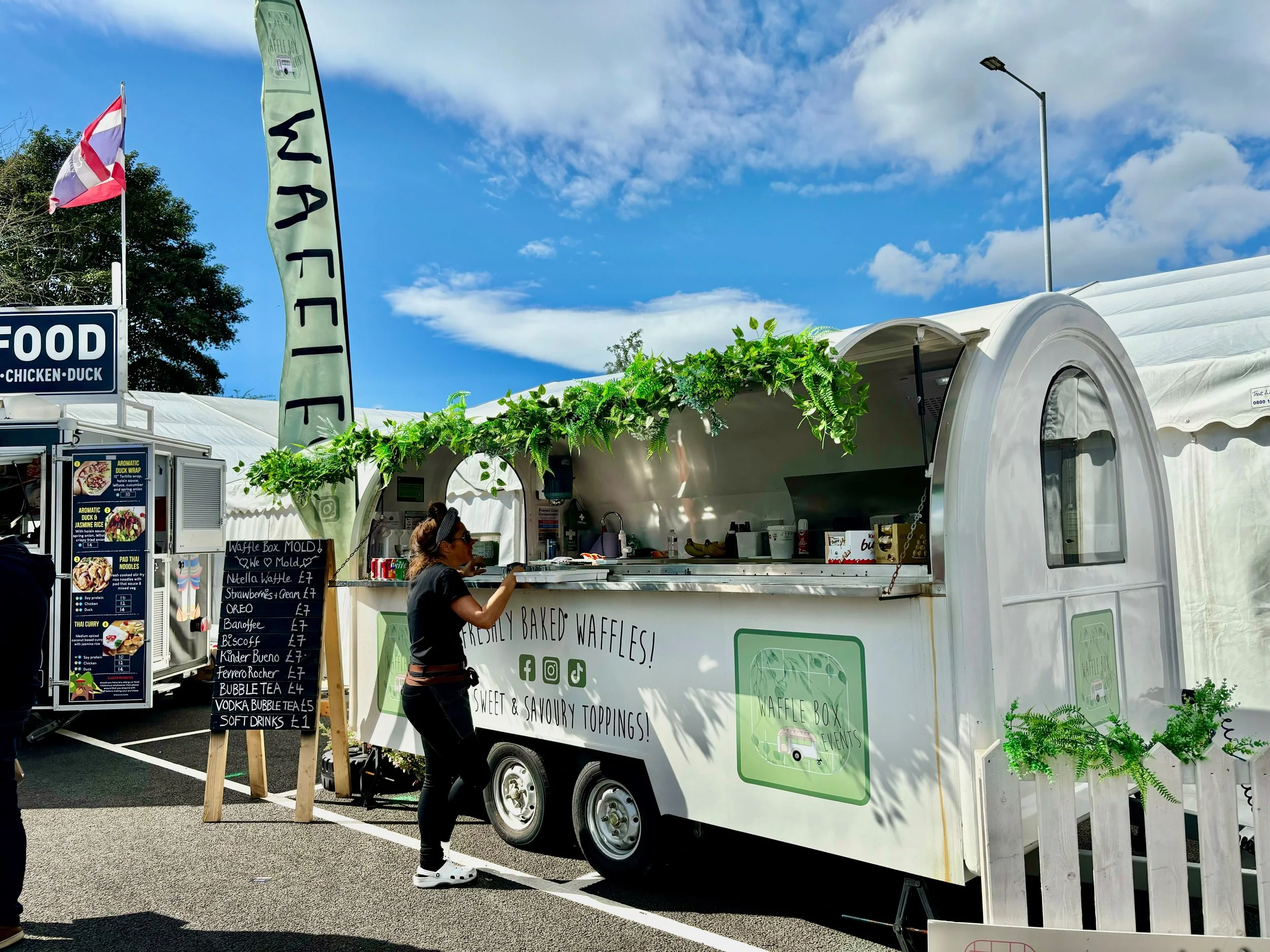Why Markets Matter: the economic and cultural impacts on towns
September is one of my favourite months of the year. The change in seasons, the Indian Summer and the sense of getting back into a routine.
September and October are also important periods in the calendar with harvesting taking place. British Food Fortnight running until the 6th of October always brings with it a nice focus around markets and festivals which are integral components of our regeneration strategies.
Following more than 17 years launching and regenerating markets, working with hundreds of producers and traders across the UK and witnessing first-hand how successful strategies can create thriving places, to me, markets are a significant factor involved in town centre regeneration.
SUCCESSES:
The history of markets and their success dates right back. Let’s remind ourselves of two of the most influential and successful businesses which started initially as markets stalls. In 1899, Wm Morrison opened an egg and butter stall and started his business in Rawson Market, Bradford, and in 1884, M&S Co-Founder Michael Marks came to the north of England and managed to secure a stall at Kirkgate Market in Leeds, both of which as we know, have subsequently become successful retail operators. Most recently lets also recognise Dunelm, Poundland, Superdry and Lord Alan Sugar for starting their businesses on market stalls who are of course, well known entrepreneurs.
DIVERSITY:
The diversity of markets are open ended. You have the traditional model such as weekly and Farmers’ Markets, and then more tailored examples such as Makers and Craft markets. There is growing popularity in customers wishing to shop locally, ethically and sustainably, and buying from the producer or maker directly fits within this.
Newer trends are leading us to see street food markets, vintage, upcycling and antique markets popping up in our town and city centres - all creating a point of interest and a vibrant customer experience.
Seasonal markets such as Christmas, harvesting and flower markets will always be popular, but will also form activity, vibrancy, footfall and a sense of community.
The great thing about markets is if you have the infrastructure, the opportunities are endless.
INNOVATION:
Market stalls is a real opportunity to encourage and drive innovation, test the market and gather market research. 57% of high street small businesses say a diverse range of small businesses is important for the future of the high street [1] and the encouragement of this is crucial.
Market stalls are a low risk and low-cost mechanism for new start-ups and businesses to trade, and this opportunity needs to be empowered.
Omnichannel opportunity can also excel here, and as we’re expecting online retailing to stagnate at 25%, there is a strong demand and need for face-to-face retailing[2].
Over the years, I have launched many ‘youth markets’ where school students have the opportunity to trade on live markets, to encourage innovation, empowerment and business acumen and with the highest number of entrepreneurs in Wales announced this year, innovation is a tool to maximise.
MARKETING:
The power of marketing is game-changing to any business, large or small. There are many digital marketing opportunities available now to create awareness and promote markets locally and internationally at no cost. Digital marketing platforms enable businesses to engage with new and existing customers, analyse data effectively and share real time accounts and business progress.
Look at the success of SpudVan which went viral, achieved over 44 million likes on TikTok and boosted footfall and the towns economy during a quiet January – and this has now happened again, this time in Preston with Spud Brothers.
Markets and traders need to utilise all marketing platforms available to them – and if unsure of delivery and capabilities, training is usually not out of reach.
Engaging and gaining coverage through existing Place Marketing campaigns is also an effective way to gain publicity.
To learn more about digital marketing and its benefits to businesses, tune in to my podcast launching this month.
IMPACT:
The impact that markets can have on a town or city centre can be huge! It drives footfall, it preserves tradition and culture, it encourages sustainability and it enhances social interaction. But without question, the biggest impact lies with its ability to support and grow the local economy.
Over the years, I have transformed many run-down markets into thriving hubs where the whole town, including existing businesses benefit hugely. I have developed thriving markets into large town centre annual Food and Drink Festivals, attracting in excess of 50,000 people over the weekend, and I have welcomed successful market traders into high street units or supported in their expansion to take on an additional two or three establishments.
It’s interesting to see that markets are up by +31.7%, bakers are up by +8%, delicatessens are up +12.5% and grocers are up by +67.6%.
Consumer demand is constantly evolving, currently it’s important to shoppers that they buy from someone that’s been directly involved with the making or process of a product. Authenticity and uniqueness remains at the forefront of consumer decision making.
The impact of a vibrant market has many social and economic benefits, and with the right strategy, marketing, business support and stakeholder engagement, the opportunities are exciting.
MEASURING SUCCESS:
There are many ways to measure successful markets such as the number of market traders on the market, their regularity and also how many people visit the market. Further measures include gathering direct business trade feedback from the traders and also surrounding brick-and-mortar businesses. However, one of the challenges with markets is the use of cash, therefore to measure indirect economic benefits in the wider localities, card spend could be analysed by comparing market days versus non-market days to gather a better economic evaluation of a successful market.
Out and about:
Trinny, Trinny, Trinny – having been a big fan for many years, it was a delight to visit the new flagship store on Kings Road during its official opening day on the 11th of September. This vibrant and full-of energy, now permanent edition is a wonderful success story after performing better than expected as a pop-up. Brilliant!
Congratulations to the team and volunteers at Mold Food & Drink Festival who delivered a great event in the town centre. This is a great example of high-quality producers showcasing their offer to consumers far and wide, can boost the economy and highlight Mold as a historic market town.
A recent trip to Geneva was both impressive and seamless. This well-connected, beautiful city demonstrated how efficient a place can function, all whilst bringing health, innovation and sustainability to the forefront.
Words of wisdom for this month:
Step outside your comfort zone, what’s when you grow.
The quickest way to succeed is to start now.
Progress, not perfection.
Until next time,
Medi
[1] FSB (2024). The Future of the High Street. https://www.fsb.org.uk/resource-report/the-future-of-the-high-street.html
[1] Rudlin, D., Payne, V., & Montague, L. (2023). High Street: How our town centres can bounce back from the retail crisis. Routledge.


![Image 2[97].jpg](https://images.squarespace-cdn.com/content/v1/65fc244a4777c5298ef10d8f/1727715870423-NNG4M6POLI17ZSHC4FPK/Image+2%5B97%5D.jpg)
![Image 3[79].jpg](https://images.squarespace-cdn.com/content/v1/65fc244a4777c5298ef10d8f/1727715877539-IWM1DGJDDIAQXGVFWWPG/Image+3%5B79%5D.jpg)
![Image 6[6].jpg](https://images.squarespace-cdn.com/content/v1/65fc244a4777c5298ef10d8f/1727715884713-UAXGP94XBSYND3VGWJIX/Image+6%5B6%5D.jpg)

![Image 4[66].jpg](https://images.squarespace-cdn.com/content/v1/65fc244a4777c5298ef10d8f/1727715643285-ZAABISNW5GF72G6WUNI4/Image+4%5B66%5D.jpg)